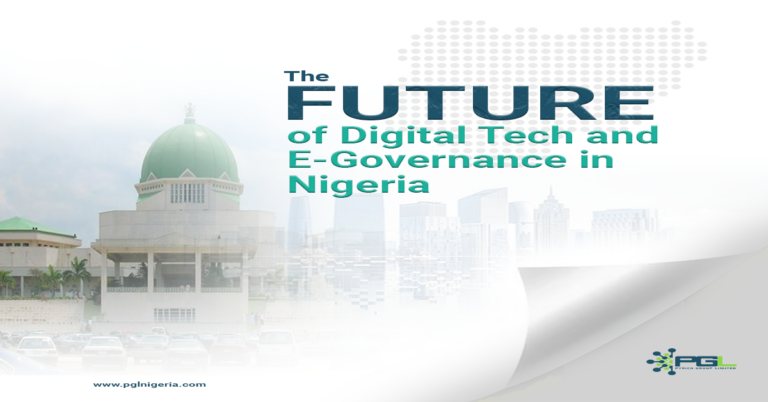The fact that Nigeria is fast becoming known globally as a leader in digital skills is no longer news, Nigeria has rapidly emerged as a significant player in the global digital landscape. With a large and youthful population, the country has witnessed a surge in the adoption of digital technology and digital skills development. Not only that, it has also seen significant strides in the adoption of digital tech for e-governance. As the country continues to embrace innovation, the future holds immense potential for transforming various sectors of the economy.
The Journey So Far
Telecommunications Revolution: The expansion of mobile networks has connected millions of Nigerians, providing access to digital services. From the early days of to MTN providing 2G internet connection, the country now boasts of 5G networks and satellite internet provider Starlink is operating in the country
Financial Inclusion: There is a rise in mobile banking and Fintech solutions that have brought financial services to previously underserved populations. It is no longer strange to see the orange or suya seller on the street receiving payments to his Point of Sale (POS) machine provided by Moniepoint, and other online financial service providers.
E-government Initiatives: The government has implemented various e-government projects, such as online tax filing and registration, to improve efficiency and transparency. The Federal Inland Revenue Service (FIRS) and Corporate Affairs Commission have seen a significant automatization of their processes.
Digital Infrastructure: Recent investments in data centres, cloud infrastructure and fibre-optic networks have laid the groundwork for a robust digital infrastructure that is helping Nigeria not just in the adoption of digital tech for everyday use but also in governance.
So, what does the future hold for Nigeria in the adoption of digital technology for government agencies?
The Future Outlook
Artificial Intelligence (AI): AI can revolutionize sectors like agriculture, healthcare, and education. For instance, AI-powered tools can analyze agricultural data to improve yields and detect diseases early. The government can rely on local expertise from companies like the Pyrich Group to create Health Information Management Systems backed by AI that can gather, analyse and provide citizens with access to publicly available data on diseases and cures and where they can access government facilities that can provide their health needs. AI will impact the future of e-governance in Nigeria
Blockchain Technology: Blockchain can enhance transparency, security, and efficiency in supply chains, financial transactions, and land records. With more transparency in how land and properties are managed, more people can have access to affordable housing across the country, lands for agriculture and other economic activities.
Internet of Things (IoT): IoT devices can enable smart cities, improve energy efficiency, and optimize resource management. This includes traffic management through IoT-enabled sensors that can monitor traffic flow, identify congestion points, and optimize traffic signals for smoother movement and waste management; and environmental monitoring with devices that track air quality, noise pollution, and water levels to ensure a sustainable and healthy environment.
Cybersecurity: As digital technology advances, robust cybersecurity measures are crucial to protect sensitive data and infrastructure.
E-commerce: The growth of e-commerce can create new business opportunities and stimulate economic growth.
Digital Education: Online learning platforms can expand access to education and improve learning outcomes.
Recommendations for New Technologies for Government Ministries
- Ministry of Agriculture: Invest in AI-powered solutions for precision agriculture, climate monitoring, and crop yield prediction. AI applications in agriculture in Nigeria will help to stop the tide of food insecurity in the country.
- Ministry of Health: Promote telemedicine, electronic health records, and AI-assisted diagnostics.
- Ministry of Finance: Encourage the development of innovative financial products and services, such as digital payments and peer-to-peer lending for both SMEs and specific groups such as student loans, asset financing and mortgages.
- Ministry of Education: Support the adoption of online learning platforms and educational apps. The government can be supported by homegrown tech companies like the Pryrich Group to develop a centralized Education Management Information System that will help in aggregating data for the management of education in the country.
- Smart Cities: Implement IoT-enabled infrastructure for traffic management, waste management, and energy efficiency.
- Cybersecurity Infrastructure: Strengthen cybersecurity frameworks and invest in talent development.
Conclusion
Nigeria’s digital landscape is evolving rapidly, offering immense opportunities for economic growth and development. The future of e-governance in Nigeria is not in doubt. By embracing new technologies such blockchain technology for supply chain management and investing in digital infrastructure, Nigeria can position itself as a leader in the global digital economy. A collaborative effort between the government, major private sector players such as Pyrich Group Limited, and academia is essential to realize this vision.






